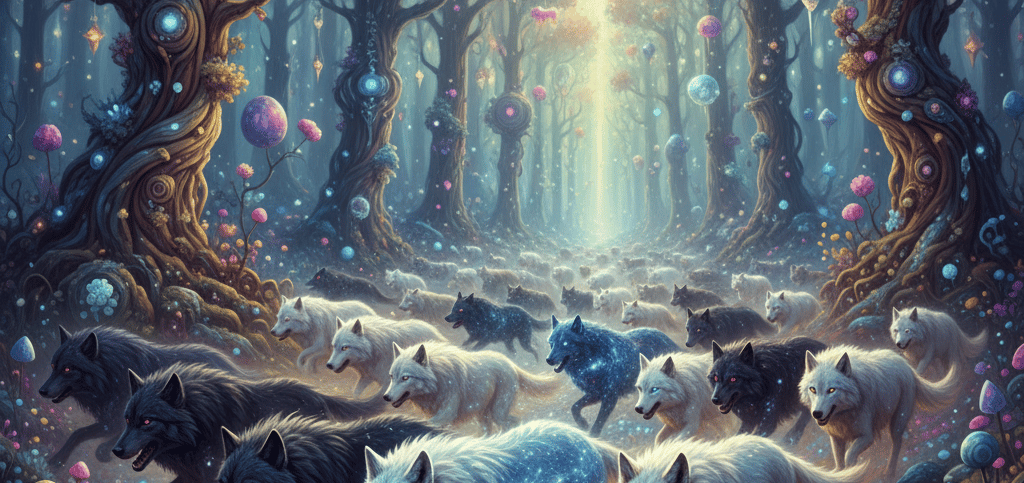Episode 15: The Riddle of Blood and Smoke
Logan's father was a wanderer, a violinist who played in train stations and psychiatric wards and the spaces between sleeping and waking. His name was Dmitri, and he believed music could heal madness. He carried his violin in a case lined with velvet the color of midnight, and he played melodies that made nurses weep and made patients remember who they used to be.
DARK RECESSES
Billy
9/26/20256 min read


Episode 15: The Riddle of Blood and Smoke
Logan Riley: The Man Who Speaks in Spirals
He never told me anything directly.
He spoke in symbols. In fragments. In dreams that tasted of copper and ash.
But over time, I pieced it together, like decoding a sacred text written in smoke and sealed with blood. Logan Riley wasn't just another patient in Ward 7. He was a keeper of secrets, a translator of the untranslatable, a bridge between what was real and what was more than real.
The first time I heard him speak, I thought he was having a breakdown. He stood by the window during evening meds, pressing his palm against the glass, whispering to his own reflection:
"The mirror knows what the eye refuses to see."
Dr. Martinez dismissed it as word salad. But I heard the rhythm in it. The weight. Logan wasn't speaking nonsense; he was speaking in code.
The Gypsy Lineage
Logan said his grandmother was a Romani seer who read the future in candle wax and broken mirrors. She lived in a caravan that smelled of cloves and sorrow, parked at the edge of forgotten villages where the roads turned to dust and the streetlights died young.
Her name was Vadoma, which meant "to know." She had hands like parchment and eyes that changed color with the weather. She could see death three days before it arrived and birth two weeks before conception.
She once told Logan, when he was seven and still believed in straight answers:
"You are the echo of a curse and the whisper of a blessing. You will carry voices that are not your own, and you will speak truths that others fear to hear."
Logan's father was a wanderer, a violinist who played in train stations and psychiatric wards and the spaces between sleeping and waking. His name was Dmitri, and he believed music could heal madness. He carried his violin in a case lined with velvet the color of midnight, and he played melodies that made nurses weep and made patients remember who they used to be.
He died in a fire that Logan says was "started by silence", a phrase I didn't understand until months later, when Logan explained that his father had tried to heal a mute boy with music, and the boy's screams, when they finally came, were so full of rage they ignited the air itself.
Logan was raised by shadows after that. By his grandmother's stories and his father's ghost-melodies. He learned to speak in riddles because truth was too dangerous, because the last person in his family who spoke plainly had burned alive.
The Riddle Language
He taught me the language slowly, like feeding medicine to a sick bird.
A few phrases at first:
"The moon is a wound that never closes."
"Time is a hallway with no doors."
"Sanity is a costume worn by the frightened."
Then longer passages:
"Memory is a river that flows backward, and we are all drowning in yesterday's rain."
"The dead speak loudest in libraries and psychiatric wards, where silence has weight."
"God plays violin with broken strings, and we call the discord 'life.'"
I asked him once why he spoke that way, why he couldn't just say what he meant.
He looked at me with those storm-colored eyes and said:
"Because riddles are the only way to tell the truth without being punished. Because the moment you speak plainly about the things that matter, they either lock you up or burn you down. Because my father forgot this rule, and now he lives in smoke."
He paused, then added:
"Besides, Billy, you understand me perfectly. That should worry you more than it does."
He was right. I did understand. Every metaphor, every sideways truth. It was like remembering a language I'd spoken in dreams.
The Ritual of Memory
One night, three weeks after our first conversation, Logan led me to the far end of the common room. The space where the fluorescent lights flickered and died, where the orderlies never bothered to look.
He lit a candle stolen from Sister Agnes's chapel, a white votive that smelled of vanilla and forgiveness. He placed it between us on the scarred linoleum floor, and in its light, his face looked ancient. Carved from shadow and regret.
He whispered:
"Tonight, I will show you my blood."
He didn't mean literally. He meant memory. He meant the stories that run in veins deeper than DNA.
He told me about the asylum in Romania where his great-uncle Bogdan had lived for thirty-seven years. A place called Mărcuța, hidden in mountains that forgot their own names. A place where patients were taught to paint their dreams on the walls, where madness was considered sacred, a gift from God's left hand.
The doctors there wore masks, Logan said. Not surgical masks, but carved wooden faces that hid their fear. They believed that to look directly upon true madness was to invite it into your soul.
"Uncle Bogdan painted wolves," Logan whispered, the candlelight dancing in his pupils. "Hundreds of wolves, running through forests that existed only in his mind. Black wolves, white wolves, wolves made of starlight and shadow. The doctors said he was painting his illness. But my grandmother knew better."
"What was he really painting?"
"The things that chase us. The hunger that has no name. The darkness that knows our address."
Logan's voice grew softer, more distant:
"When they finally released him, he could no longer speak in words. Only in colors. He would point to the sky and say 'wolf-blue.' He would touch a flower and whisper 'hunger-yellow.' My grandmother understood every syllable."
The candle flickered. In the dancing light, I could almost see them, the painted wolves, running endless circles on asylum walls.
"I carry that place inside me," Logan said. "The painted rooms, the masked doctors, the wolves that never sleep. I think you carry one too, Billy. I think we all do. A secret asylum where we keep the things too dangerous for daylight."
The Weight of Understanding
After that night, I began to notice things.
The way Logan's eyes would track movement that wasn't there. The way he would whisper to corners where the shadows gathered thick. The way other patients would grow quiet when he passed, as if he carried some contagion of truth they didn't want to catch.
He started teaching me more of the riddle language:
"Hope is a lie told by the dying to the dead."
"Fear has an address, and it's always the place you call home."
"The sane are just the insane who learned to hide better."
But he also taught me something more dangerous, how to listen to the spaces between words. How to hear what people meant when they said nothing at all.
Dr. Martinez thought I was improving. My episodes were fewer, my responses more "appropriate." What she didn't understand was that I wasn't getting better, I was learning to translate. Learning to speak the language of the surface world while keeping the deeper truths hidden.
Logan watched this transformation with something like pride.
"You're becoming fluent," he told me one evening, as we watched the sunset paint the common room walls the color of old blood. "Soon you'll be able to pass among them without being detected."
"Pass among who?"
"The ones who think sanity is real. The ones who believe their own costumes."
He smiled then, a sad, knowing expression that belonged to someone much older than his years.
"But remember, Billy, no matter how well you learn to speak their language, never forget your own. Never forget the wolves. They're the only things keeping you honest."
The Last Riddle
The night before Logan was transferred to the secure wing, for reasons Dr. Martinez would never fully explain, he gave me one final gift.
A riddle so complex, so layered with meaning, that I'm still decoding it years later:
"The son of smoke seeks the daughter of mirrors in the city where time walks backward. When the broken violin plays the song of unburning, the wolves will remember their names, and the asylum will open its doors from the inside."
I asked him what it meant.
He just smiled and pressed something into my palm, a small piece of painted wood, no bigger than a postage stamp. On it, barely visible in the dim light, was a tiny wolf running through a forest of human faces.
"When you figure it out," he whispered, "you'll know you're ready to leave this place. Not because they'll release you, but because you'll release yourself."
The next morning, Logan was gone. The orderlies said he'd been violent during the night shift, but I knew better. Logan Riley didn't do violence, he did truth, which was far more dangerous.
I still have that piece of painted wood. I still study his riddles in the quiet hours before dawn.
And sometimes, when the fluorescent lights flicker and the shadows gather thick in forgotten corners, I can swear I hear the distant sound of a violin playing melodies that taste of smoke and forgiveness.
The wolves are still running. They know my name now.
And I'm beginning to remember theirs.
Billy’s Journal Fragment
Logan is not crazy. He is ancient. He is a library of forgotten languages. He speaks in riddles because the truth is too sharp to hold. I think he sees me. Not just my face. My shape. My shadow. He told me I was a prophet once. I laughed. But now I wonder. Maybe madness is prophecy. Maybe we are the ones who remember what the world wants to forget.
info@billybeaner.com
480-366-3550 (Domain Sales)
© SDBEST LLC, 2025. All rights reserved.
